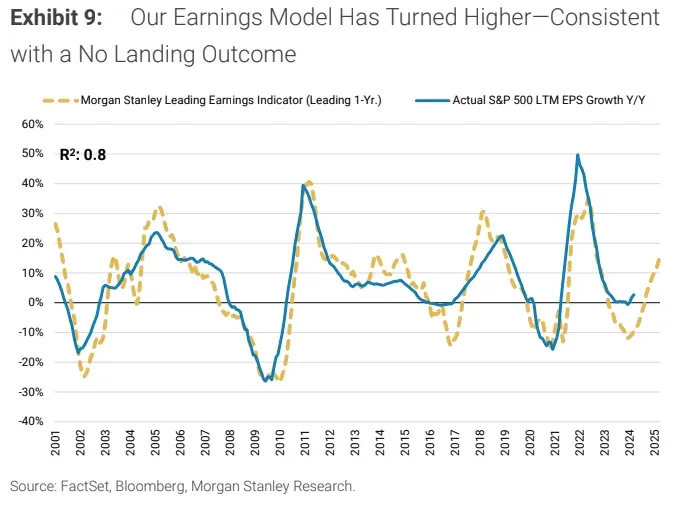Amid fluctuating economic forecasts and inflation concerns, a notable shift in investor sentiment suggests a growing belief in a 'no landing' scenario for the US economy. According to the latest Bank of America Global Fund Manager Survey, 36% of respondents now anticipate that the US will continue to grow without the inflation rate meeting the Federal Reserve's 2% target, a significant increase from previous months.
Evolving Economic Expectations
This shift represents a stark change in Wall Street's narrative. Previously dominated by debates over whether the US would experience a hard landing—triggered by restrictive policies leading to a recession—or a soft landing, the focus has now turned to ongoing economic resilience. Only 7% of surveyed investors currently foresee a hard landing as the most likely outcome, indicating reduced fears of a recession.
Strong Consumer Spending and Economic Growth
Supporting this sentiment, recent economic data, including March retail sales, suggest sustained consumer spending. The control group retail sales, which exclude volatile categories like autos and building materials, saw a 1.1% increase. This robust consumer activity has led economists, including those from Goldman Sachs and the Atlanta Fed, to revise their US economic growth forecasts upwards for the first quarter of the year.
Implications for Inflation and Federal Reserve Policy
Despite the positive growth indicators, the persistence of high consumer spending poses challenges for controlling inflation. This scenario complicates the Federal Reserve's path to reducing interest rates, as continuous demand could keep inflation rates above desired levels. Nationwide’s chief economist, Kathy Bostjancic, suggests that recent data could delay rate cuts to September or even next year, echoing a sentiment of prolonged monetary policy tightening.
Market Reactions and Strategic Adjustments
The market's response to these developments has been mixed, with significant movements in Treasury yields and specific stock indices like the Russell 2000, indicating increased sensitivity to interest rate changes. Morgan Stanley’s chief investment officer, Mike Wilson, notes that while some market segments may face valuation risks due to higher rates, others, particularly large-cap sectors like energy, could benefit from a better-than-expected growth environment.
As more investors align with the 'no landing' scenario, the economic outlook for 2024 remains cautiously optimistic yet complex, with ongoing adjustments likely as new data emerges. This evolving perspective underscores the dynamic nature of economic forecasting and the critical role of consumer behavior in shaping future monetary policy and market strategies.


 MS
MS
 GS
GS
